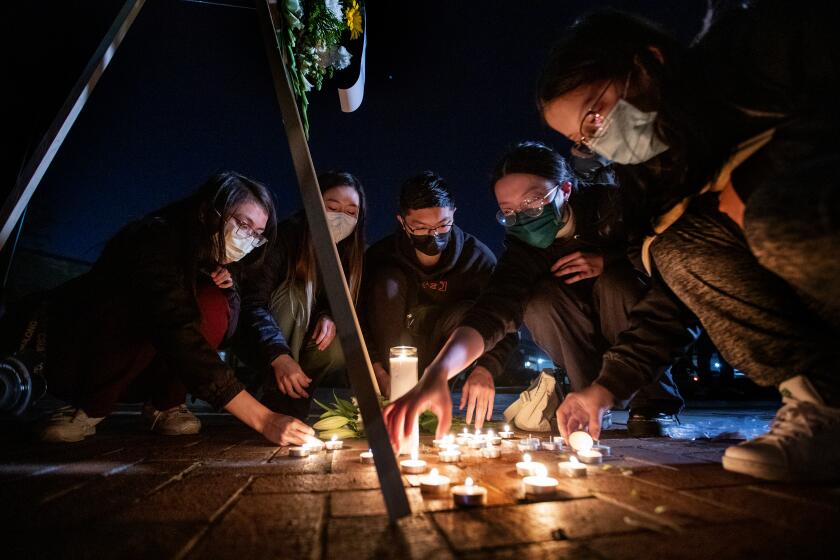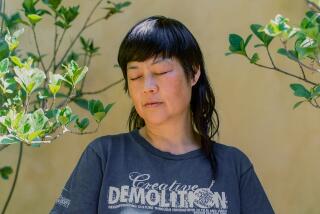L.A. artist commemorates Monterey Park victims with portraits: ‘Remember them as they were’
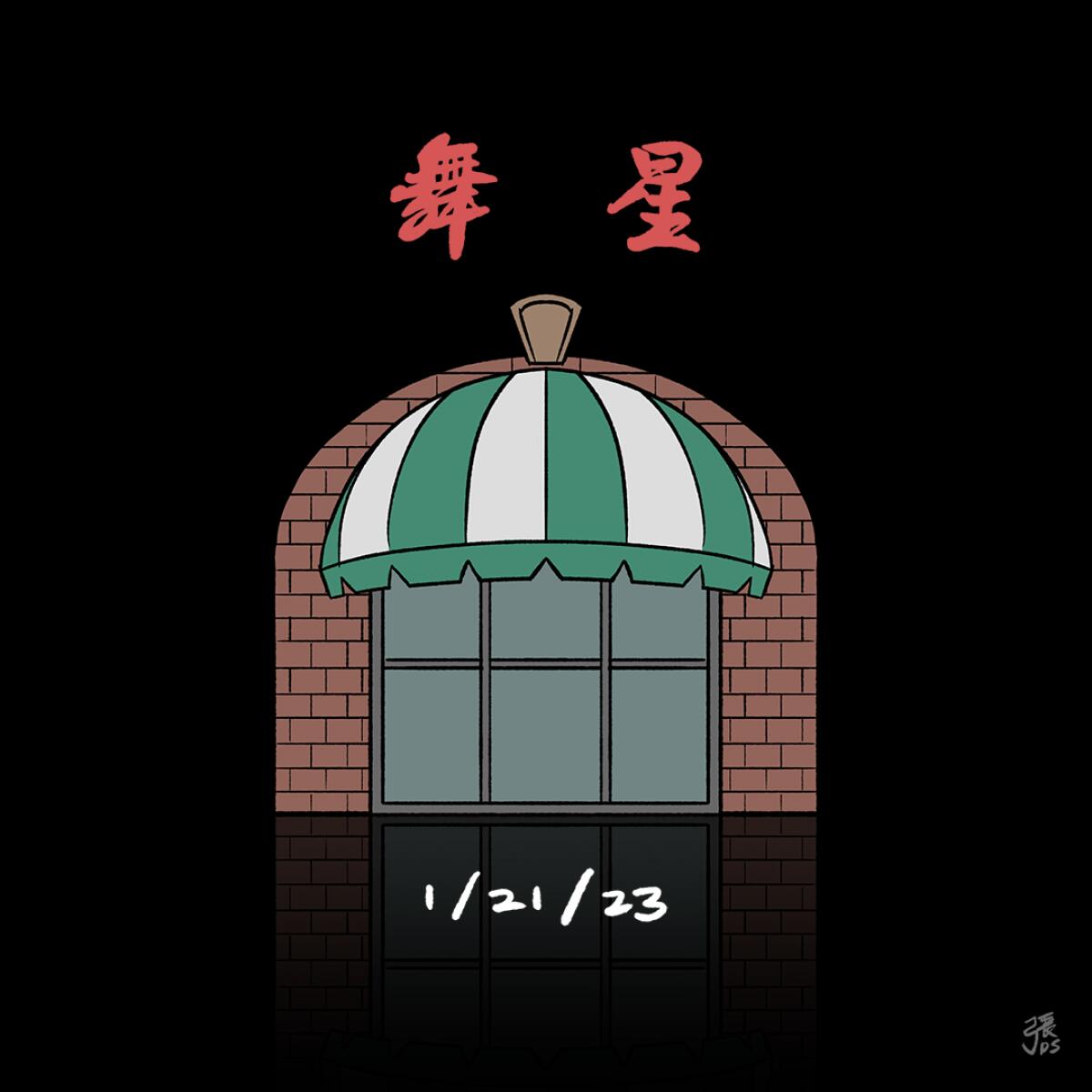
- Share via
When Jonathan D. Chang visits the 626, he often wears a black hoodie emblazoned with a colorful print of Guangong on the back. A military general from the Three Kingdoms era turned Taoist guardian deity, Guangong, or Guan Yu, is known throughout China and parts of Vietnam as a symbol of wealth and protection. Chang’s hoodie features his own design of the deity, which he drew in classic chibi fashion with a big head and smaller limbs.
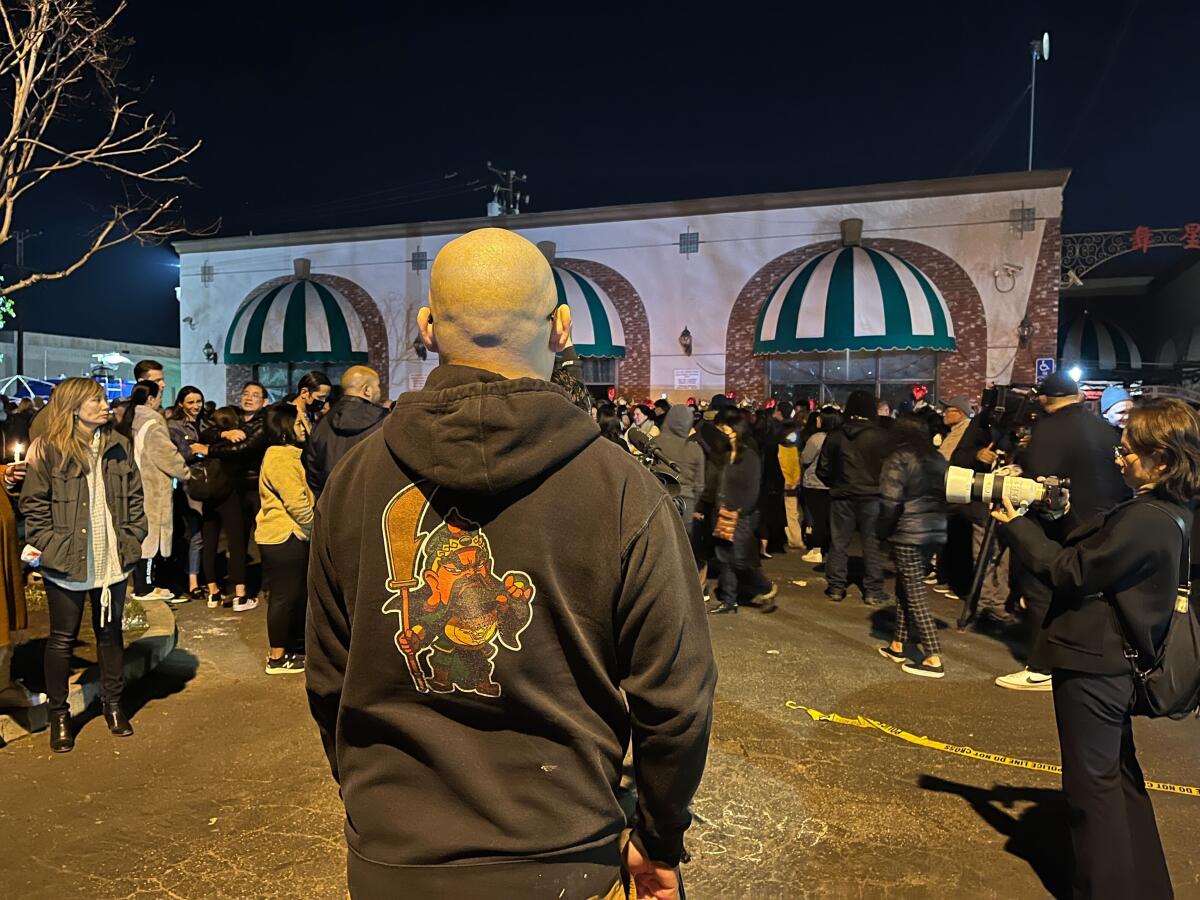
“When I was growing up, I was always kind of scared of the figure because it was a red face,” Chang says. “Ugly, intimidating, but it was real.”
These days, Guangong has been on Chang’s mind a lot. “I feel like there is so much negativity and violence happening. Wouldn’t it be nice if there was a figure protecting us when we actually need it?”
Asian American communities are least likely of any racial or ethnic group to seek mental health resources.
As Chang reflects on this, he is standing on the outer ridge of a vigil last Wednesday evening at the Star Ballroom Dance Studio in Monterey Park, where a gunman killed 11 people on the first day of the Lunar New Year. Chang was shocked to learn of the shootings; he had been in Alhambra the night before, eating New Year’s Eve dinner with his mother and grandparents. “I never thought it would happen in our area, especially our own backyard — a place that so many Asian Americans in this area call home. It’s where we go to eat dim sum with our grandparents or have our first date with our girlfriends,” he says.
While wrestling with grief, Chang decided to draw illustrations of the victims, depicting Ming Wei Ma, 72; Mymy Nhan, 65; Diana Tom, 70; Xiujuan Yu, 57; Valentino Marcos Alvero, 68; Yu-Lun Kao, 72; Hongying Jian, 62; Wen-Tau Yu, 64; Chia Ling Yau, 76; Muoi Dai Ung, 67; and LiLan Li, 63. Each portrait, drawn with a Wacom Intuos Pro tablet and edited using Adobe Photoshop, has vibrant colors. Chang shared these portraits on his Instagram, with captions detailing each person’s life and the impact they had on those around them, and linking to GoFundMe campaigns launched by surviving family members.
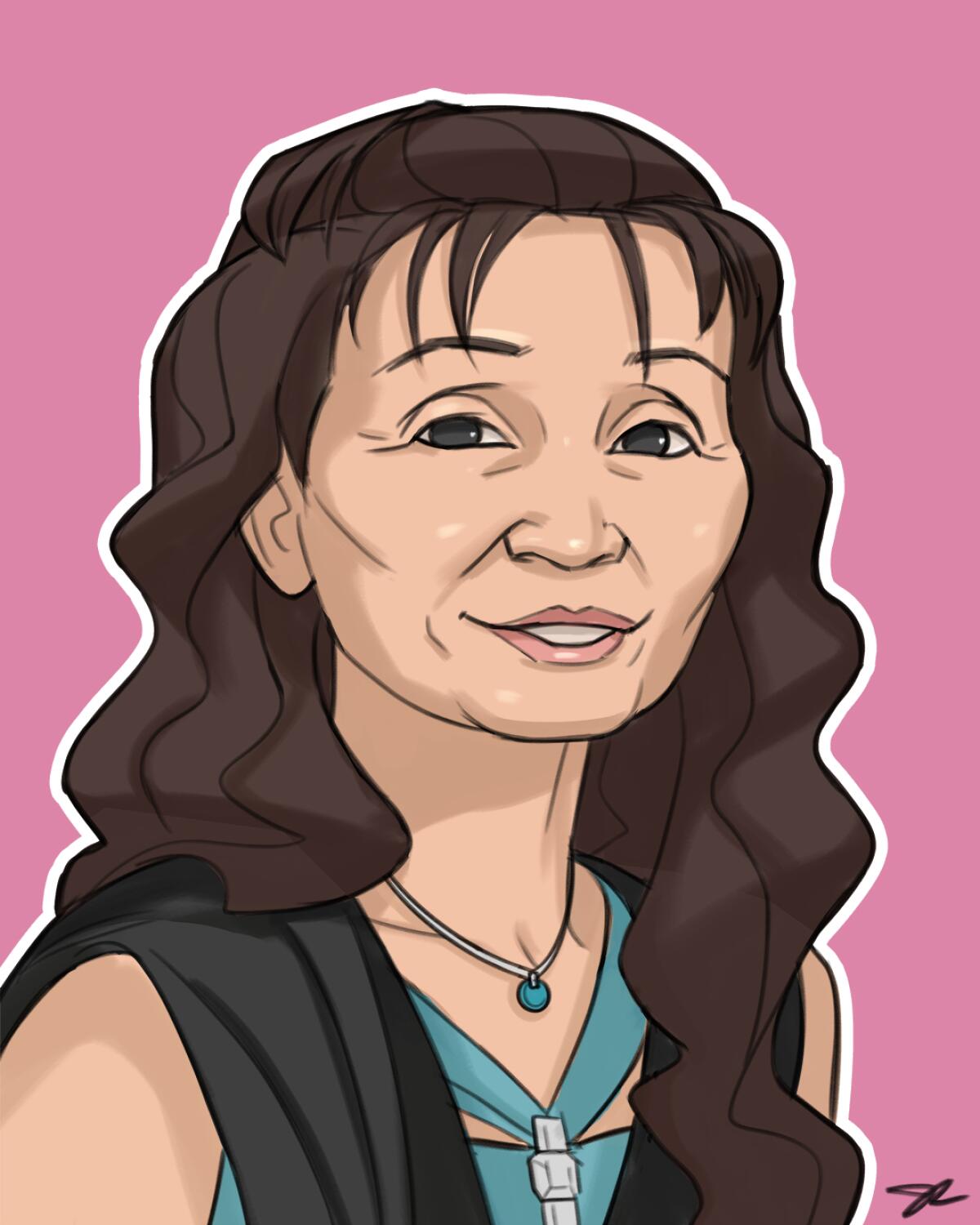
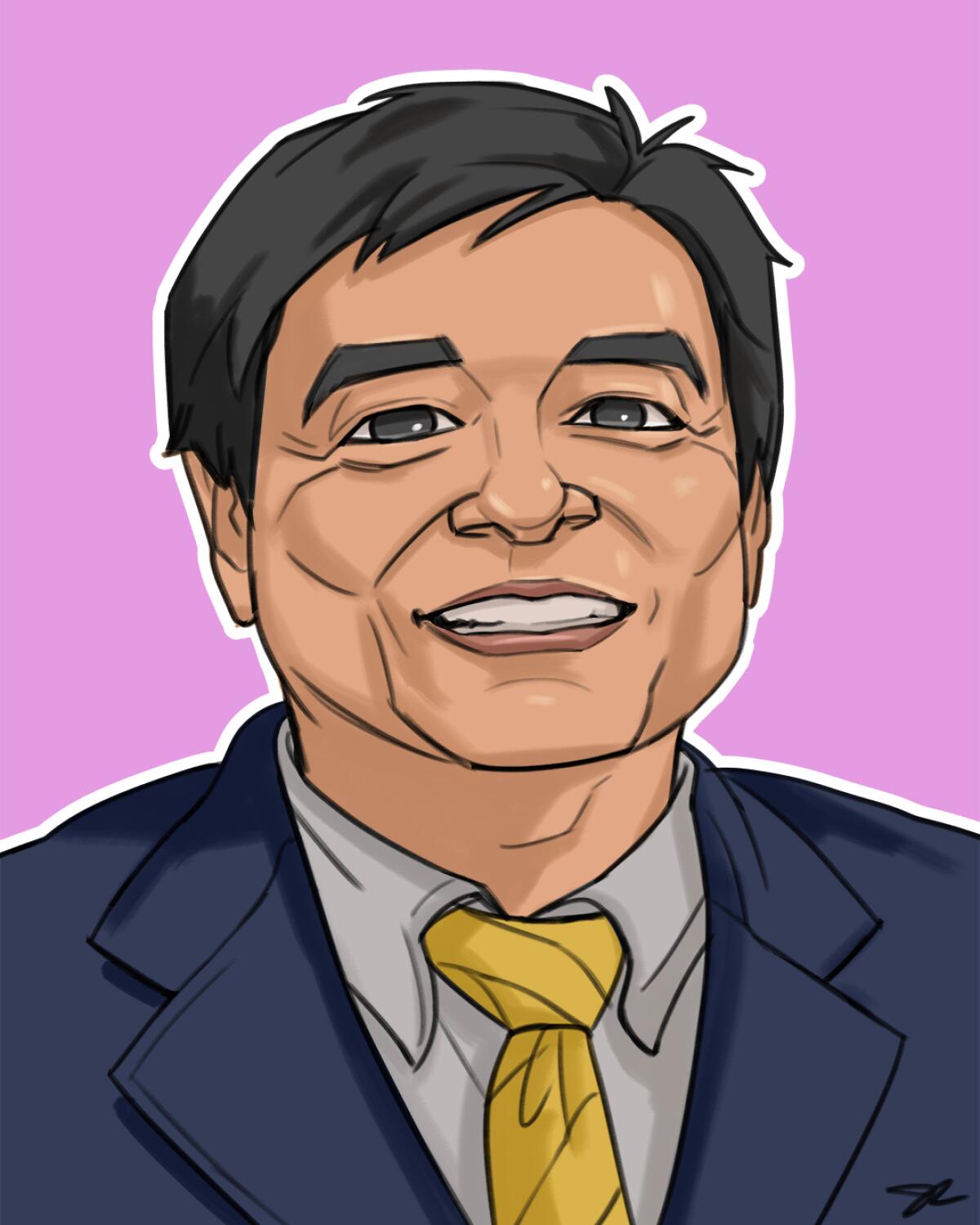

Although he never intended his Instagram account to be a news source, he is aware that it has helped strangers have conversations with their friends about tough topics. Emphasizing people’s humanity is what has inspired Chang to draw portraits of those killed in shootings and those affected by the rise in anti-Asian violence during the COVID-19 pandemic, as well as events that perhaps don’t make national headlines. He feels that this approach helps to “bring our community closer … versus just reading a blip on a website.”
Born in Taiwan, Chang moved to the Los Angeles area with his mother when he was 3 years old after his father died. He mostly grew up in Temple City and attended the now-shuttered New Avenue school. His mother worked in real estate on Valley Boulevard at an escrow company, where he spent evenings at the office with her, drawing on blank pieces of copy paper. The family briefly relocated to Tampa, Fla., for a few years before eventually returning to Southern California. In Tampa, Chang says he was the “only Asian kid for miles” and recalls having to “defend his Asianness” frequently. Thankfully, his mother encouraged him to embrace his identity. While Chang gravitated toward art classes at Arcadia High School, he was admittedly “not a good student,” he chuckles, though he met his fiancée in one of those courses.
Los Angeles’ diversity has long nurtured his artistic approach. Surrounded by different diasporic cultures, Chang would visit Monterey Park to eat Singapore noodles and hot pot growing up. He would check out the little capsule machines with Dragon Ball Z holographic trading cards outside of a Chinese bookstore in Focus Plaza. At the Kinokuniya in Little Tokyo, he would nerd out on all of the art books, video games and comics animations. These childhood obsessions, Chang says, informed his playful chibi drawing style: something that has stayed with him as a multidisciplinary designer and illustrator for toy products and even merch for Andrew Yang’s 2020 campaign.
While working a 9-to-5 as an art director at OnChain Studios, Chang has to shift what he calls “community service” art time to the evenings. He has a backlog of portraits that he’s working on and has spent the last week at his dinner table creating portraits of the Star Ballroom Dance Studio victims.
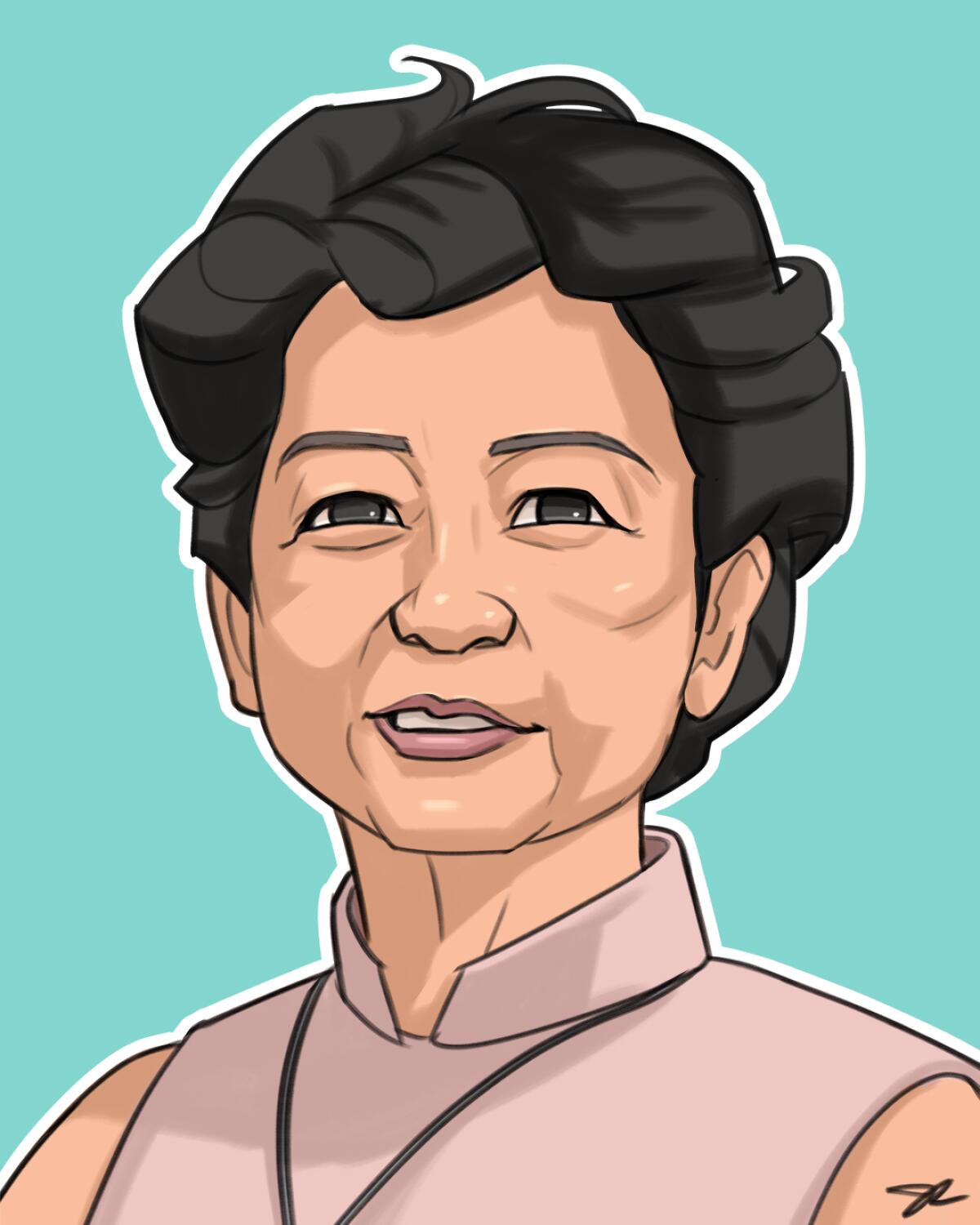


In February 2021, Chang drew a bright, colorful portrait of 84-year-old Vicha Ratanapakdee, a Thai immigrant who had been attacked and killed a month before while walking in the Bay Area. “My condolences to the family of Vicha Ratanapakdee. I hope justice will be served,” Chang captioned his illustration of Ratanapakdee. As anti-Asian violence continued to rise during the pandemic, Chang drew and posted portraits of people including Michelle Go, who was pushed onto New York City subway tracks, and Yao Pan Ma, a restaurant worker who was shoved to the ground while collecting cans. He depicted Asian American heroes like Betty Ong, the flight attendant who reported to American Airlines that Flight 11 had been hijacked on 9/11, and Filipino nurses on the frontlines battling the coronavirus.
When 76-year-old grandmother Xiao Zhen Xie fought off an attacker who punched her in San Francisco, Chang created a viral gif of Xiao swinging a baseball bat with the caption “F— around and find out.” Soon, Chang’s design of Xiao was printed on 1,000 T-shirts and all the proceeds went to #StopAsianHate’s AAPI Community Fund. Chang prioritizes working with Asian-owned businesses and emphasizes that his art should not be used for profit. He is also adamant about people not misappropriating his art for their own political agendas.
“That was something we discussed right off the bat,” said Stephanie Tran, co-owner of Town Print, the Bay Area print shop that worked with Chang. The team reached out to Squarespace to request that processing fees be waived and donated. The shirt sales raised more than $37,000 and were doubled by a match through Goldwater Capital. “A lot of times when we work with artists, they would get paid for their time or licensing fees. Jonathan is just really doing this out of his heart to honor the victims and raise awareness,” she adds.
“It’s not really meant to be like this masterpiece work,” Chang says of these portraits. His process usually involves doing research about each individual and what family members have to say about them. He applies flat colors to the piece and throws on a shadow highlight layer that resembles a halo, which also gives the 2-D drawing further dimension. “They’re done more for speed. It feels like a moment in time. I want to capture a candid moment: they’re smiling, they’re getting their photo taken by someone that they really loved. Remember them as they were, not like this big tragic thing that happened to them.”
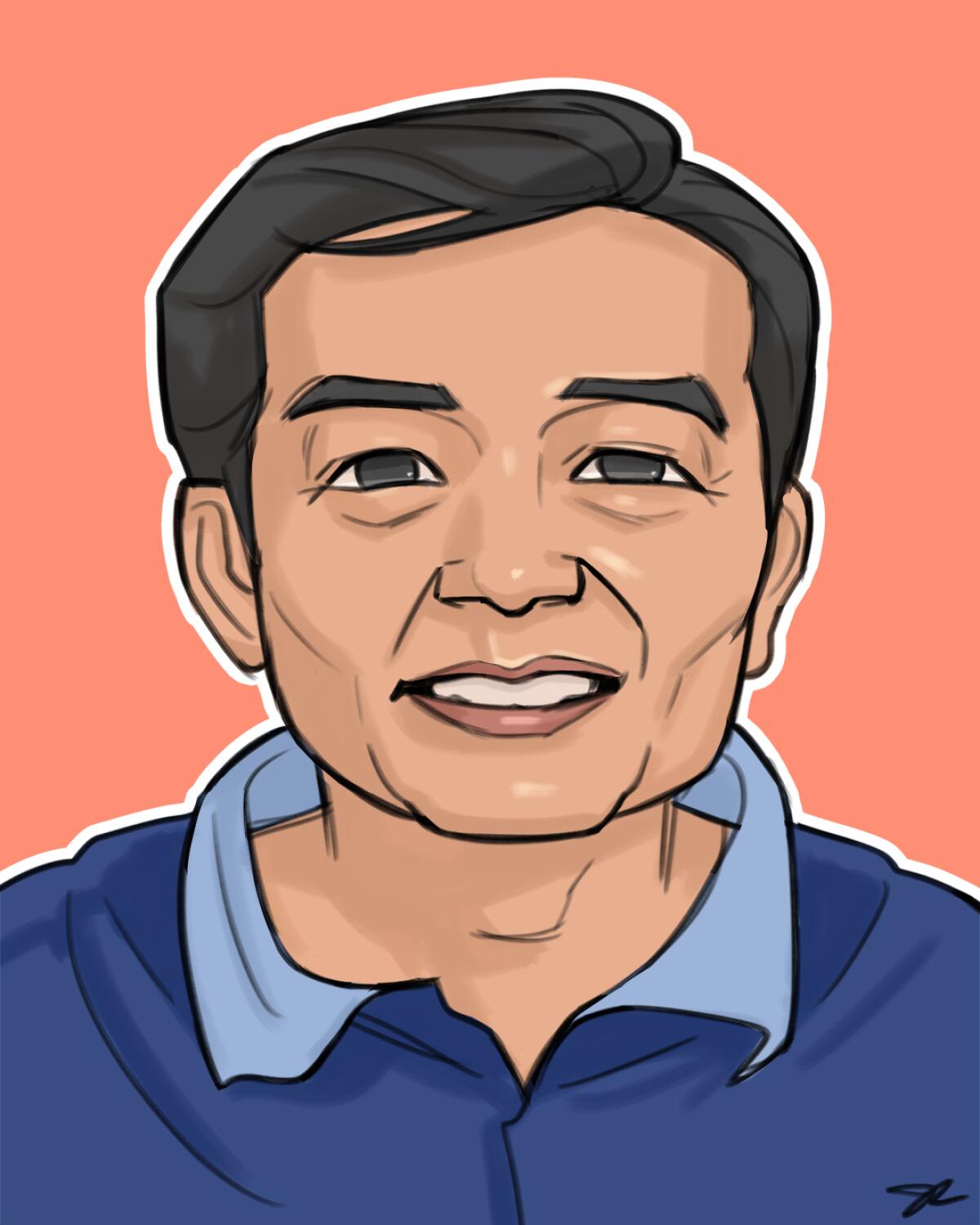


Sometimes, Chang receives messages from family members who stumble across the portraits. Alice Sakaye, the daughter of Maria Liang, the owner of Star Ballroom Dance Studio, wrote to him after seeing the portraits of the victims of the shooting: “It really touched me and my mom. Thank you so much for paying tribute to those who have passed away … they were longtime friends and patrons who shared a love for dancing and supported our small business.”
It’s these messages that keep him going, he says, beyond the tiring nature of the work and when the news cycle has shifted its attention elsewhere.
“After the media has gone, and then this is no longer the news cycle, these families have to deal with this stuff for life,” he says. “It’s really important to humanize our community and to show that just because it’s not your family, it could have been. We never know.”
He wants individuals to feel empowered to apply their skills to local community activism.
“I feel like the one thing that we can all agree on is [that] we all want to keep our elders safe. We want to protect the most vulnerable in our community,” adds Chang. “And I feel like as long as we focus on that, that’s going to make us unify even more.”
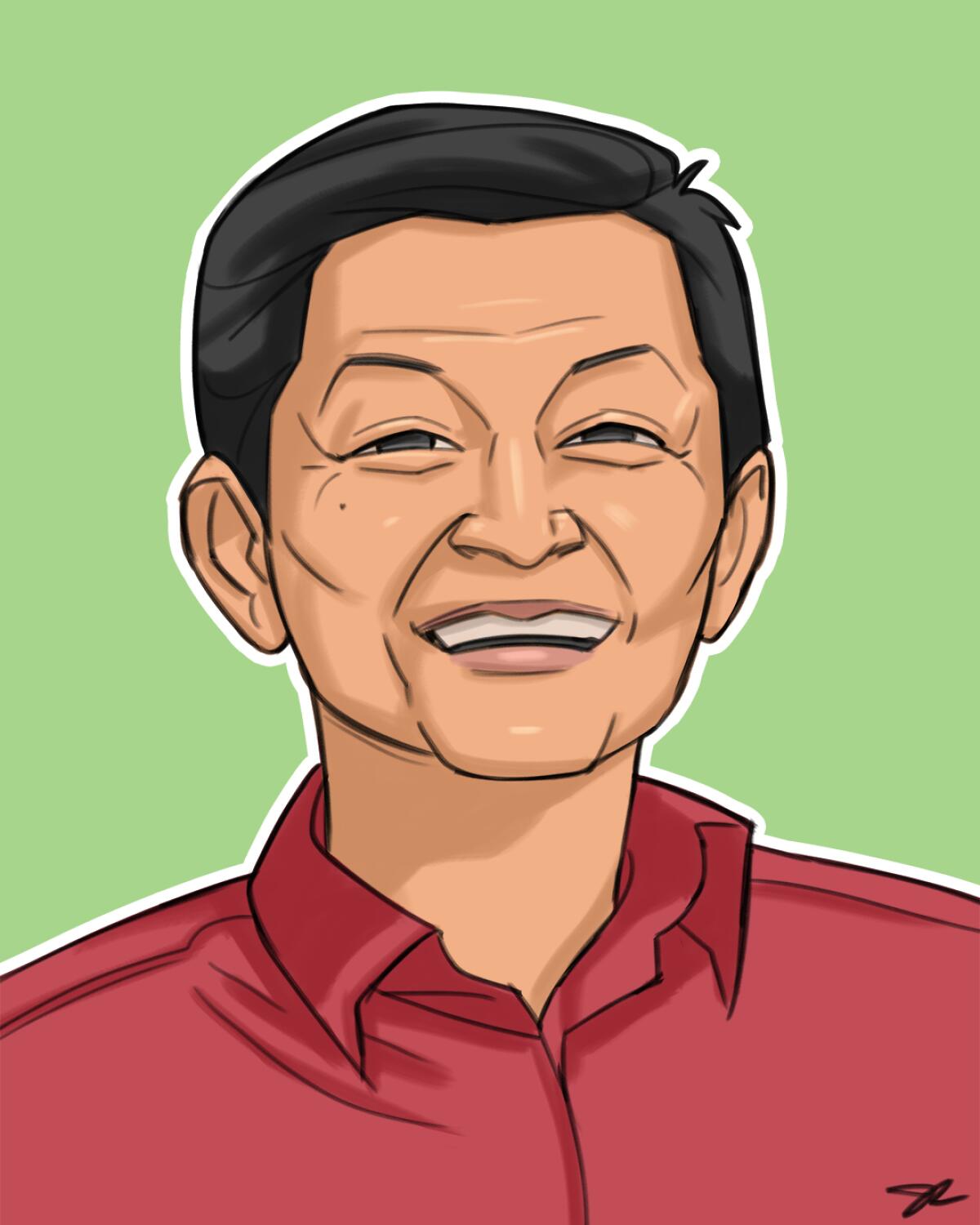
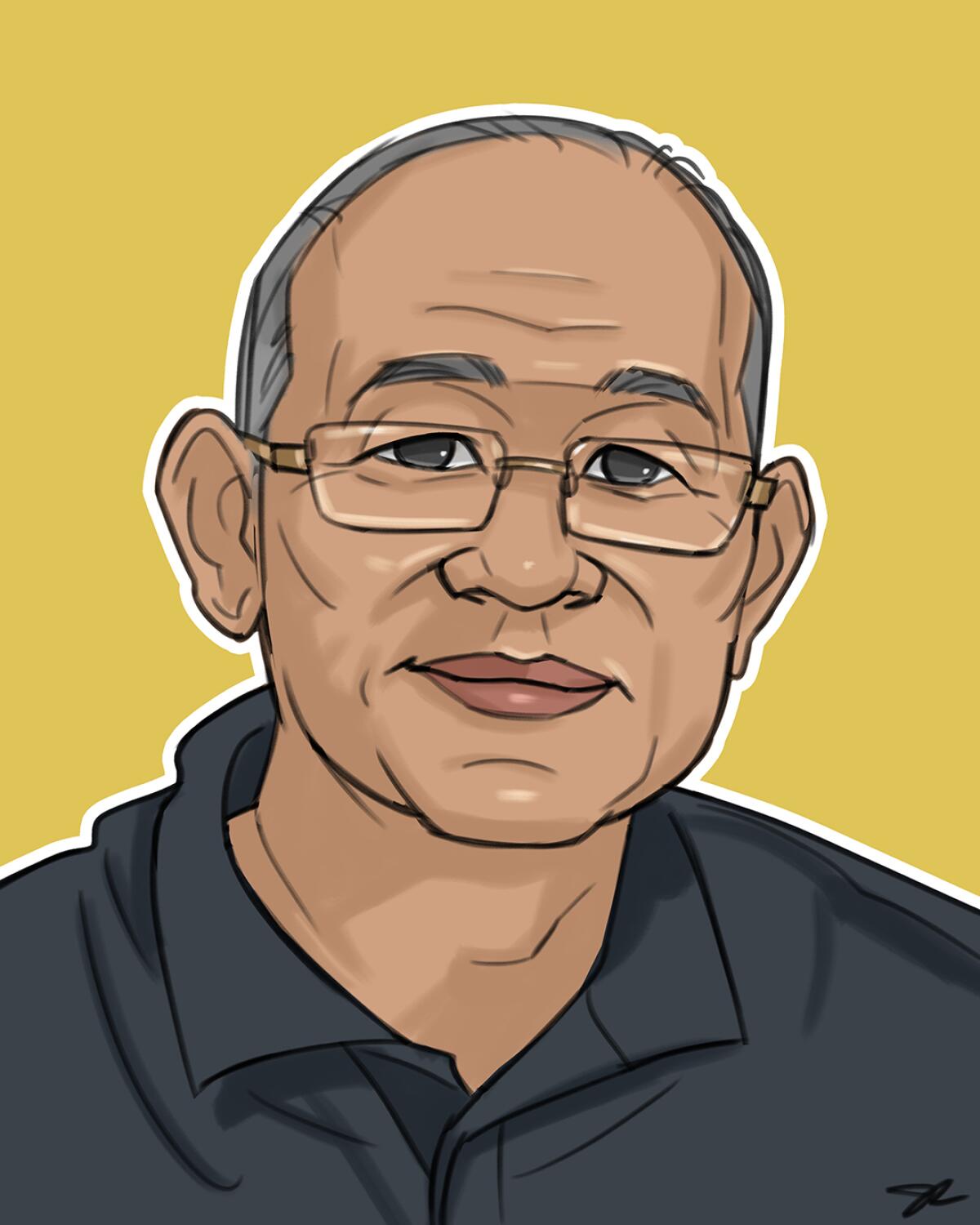
More to Read
The biggest entertainment stories
Get our big stories about Hollywood, film, television, music, arts, culture and more right in your inbox as soon as they publish.
You may occasionally receive promotional content from the Los Angeles Times.
